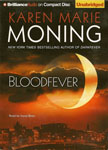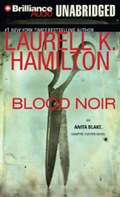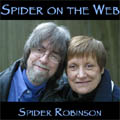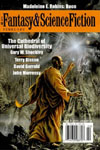
 Robyn Lass, the editor of GeekBlips.com asked me to contribute to a “blogger opinion” article, kind of a mind meld like post (of the kind SFSignal.com regularly does). Here’s the question she asked:
Robyn Lass, the editor of GeekBlips.com asked me to contribute to a “blogger opinion” article, kind of a mind meld like post (of the kind SFSignal.com regularly does). Here’s the question she asked:
“If you could have the ability/gadgetry of your favorite science fiction TV or Movie character and join them – in their world – on one of their adventures, who would it be and why?”
Yeah. So, I wasn’t sure I could answer the question. Join their adventures? That’s not me exactly. But, there was something there. I thought about it for a few hours. Then, I finally wrote this:
A few years ago there was a pirate broadcast called Prisoners Of Gravity that would regularly interrupt a lame TV Ontario nature show called Second Nature. Lasting just under a half hour, it was hosted by a crazy Canadian who had strapped a rocket to the roof of his Camaro, launched himself into space and then crashed into an orbiting satellite. From there, in his high castle, Commander Rick (aka Rick Green) lived, surrounded by the things he’d brought with him: computers, comics and lots of paperback books.
Meanwhile, back on Earth, a shadowy crew of SF fans would rove the bookstores and Science Fiction conventions recording interviews with the creators of SF and Fantasy. They’d take the interviews with writers like Robert J. Sawyer, Alan Moore, Ray Bradbury, Neil Gaiman and Garth Ennis, and upload them all to Commander Rick in the satellite. From there Rick would record these interviews onto audio cassettes and keep them for use in his live broadcasts. He would also make use of the telephone and satellite video feeds that he had access to in order to record live interviews with his guests during the show. The programs were compiled and broadcast with the help of a mute, but highly intelligent, computer named NanCy. Topics discussed were different every episode,with individual shows on censorship, superheroes, humor, religion, fairy tales, Mars, cyberpunk, war, overpopulation, sex and much, much more.
The series aired 139 episodes over a five years mission – it is rumored that Commander Rick died (having perhaps run out of food) – but it is also rumored that he returned to earth – since then NanCY has managed just a very few transmissions in the form of reruns. There was no better news magazine program that explored SF, Fantasy, Horror and comics and their various themes and ideas.
I’ve been thinking it would be really great to strap a few solid rocket boosters to the roof of my own car and do my own show. In the meantime I’ve been bidding on ebay for used spacesuits. One day I may win one.
You can see the original article |HERE|. You’ll find a few other peoples’ answers too.
Posted by Jesse Willis



 Blood Noir
Blood Noir


